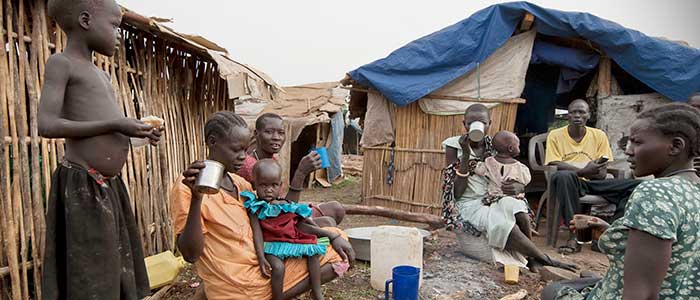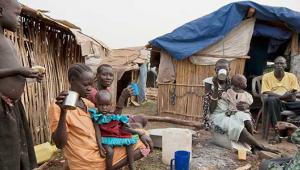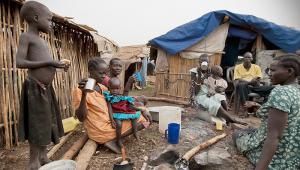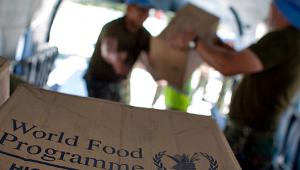Web_SouthSudan_iStock_000061842024_Large.jpg

People in displaced persons camp in Juba, South Sudan
In October, the Integrated Food Security Phase Classification warned of a concrete risk of famine in some regions, where two years of conflict, drought and poor harvests have left four million people short of food.
The American aid agency USAID has provided nearly $1.5bn since the start of the crisis, which it said has helped to avert famine for two consecutive years.
Deputy administrator of USAID’s Bureau for Democracy, Conflict and Humanitarian Assistance Bob Leavitt said the peace agreement signed in August provides “the best chance” for a return to peace and development in the country and urged its implementation without delay.
On Monday, Oxfam warned that the flawed implementation of the agreement is leading to continued suffering and said that civilians and previously less affected areas are being targeted as fighting continues despite the ceasefire.
“Four months after the signing of the peace deal little has changed for the people of South Sudan,” said Zlatko Gegic, country director for Oxfam in South Sudan.
“Lives have been shattered, leaving many with little or nothing to survive on.
“The future of South Sudan can no longer be put on hold. It is time for the country’s leaders to play their part to make this deal a reality and bring real change for their people.”
He urged international players to take a firmer stand and hold those who stand in the way of peace responsible, and called on donors to provide stronger support.
China and the UK have also contributed funds to help alleviate the crisis.







